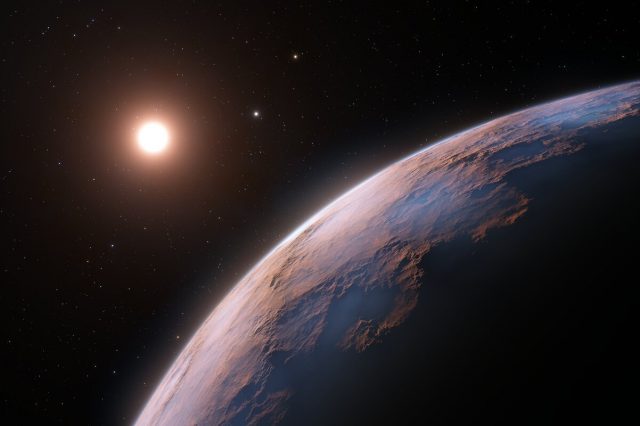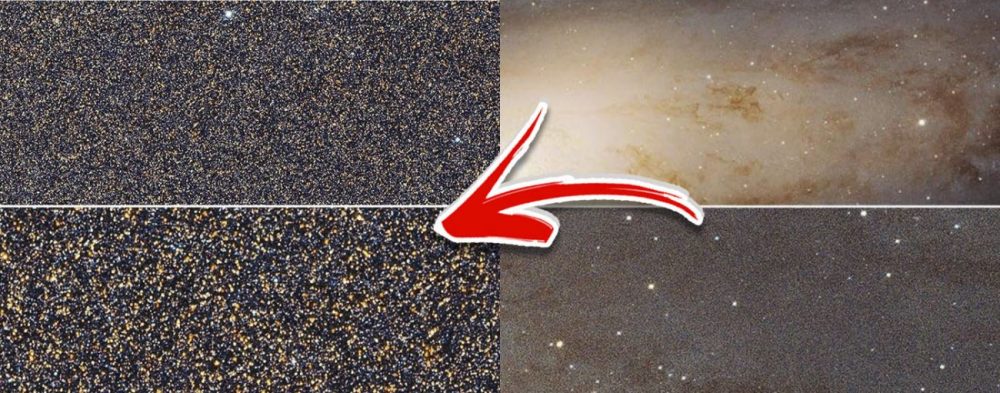According to a research paper published in the International Journal of Astrobiology, advanced extraterrestrial beings could use free-floating planets as spaceships to colonize the galaxy.
According to a study published in the International Journal of Astrobiology, researchers suggest that a better way of finding extraterrestrial intelligence (SETI) is by searching for migratory advanced alien civilizations.
Our telescopes have been pointed toward the sky for hundreds of years. We have made great progress in exploring the vastness of space. Nonetheless, we are still in our infancy of exploring the cosmos.
Progress is made each year. Each new study and each mission to space helps us understand the cosmic neighborhood we live in. Technological progress is made at a great pace, and we have put a great effort into building more advanced space ships and telescopes.
Take, for example, the recently-launched James Webb Space Telescope. It is the most advanced piece of technology ever produced and sent into space by mankind. This scientific observatory is expected to change the way we look at space, our galaxy, and distant alien worlds.
It is expected that Webb will help us in our quest to discover whether we are alone in the universe.
However, this may not be enough. The universe is massive, and we tend to focus on looking for alien civilizations by searching for potentially habitable worlds around stars similar to our sun.
But we might have a better chance of finding life –intelligent alien life– if we look not at planets but at aliens that abandoned their homeworlds.
A paper published in the International Journal of Astrobiology suggests a different approach.
In the paper, researcher Irina K. Romanovskaya proposes that extraterrestrial civilizations may abandon their home planetary systems when faced with existential threats.
Traveling on free-floating planets is one way to achieve this. In addition to providing space, food, and radiation protection, free-floating planets can accommodate very large populations embarking on interstellar travel.
Look at these worlds as gigantic– gargantuan– space ships exploring space.
Extraterrestrial civilizations may use free-floating planets — rogue planets– to study interstellar space, stars, and exoplanets or establish colonies in various planetary systems to preserve and expand their civilizations even prior to potential existential threats to their homeworlds.
Romanovaska discusses how extraterrestrial civilizations might use planet-like objects ejected from dying star systems to travel or travel on free-floating planets bypassing their home planetary systems.
An extraterrestrial civilization may transform cosmic objects like dwarf planet Sedna in the Oort cloud into interstellar ships using propulsion systems and gravitational assist events.
Planets that do not orbit a star are called free-floating planets. We called them rogue planets in the past because they had broken away from their stellar system of origin, but since we do not know whether that is true, the term was changed to 2free-floating.”
Colonization
Due to little starlight reaching free-floating planets, Romanovskaya believes aliens could harness controlled nuclear fusion as a power source and live underground or in the ocean to shield themselves from cosmic radiation. In addition, they would learn how to colonize oceans in the planetary systems they visit.
Once the aliens have approached planetary systems, they can then reposition from their free-floating planets to selected Oort cloud objects that will carry them inland and the parent planets of the systems to be colonized.
In addition, the researchers propose that planetary systems could also capture those free-floating planets, making it much easier for the interstellar alien civilization to colonize such planetary systems.
How do we find aliens using free-floating planets?
Romanovskaya proposes looking for certain techno-signatures on free-floating planets, such as electromagnetic emissions produced by alien technologies on and around the planets and observer coinciding signs of terraforming that could be indicative of colonization.
Astronomers might misinterpret the origin of signals if they detect technology produced on a planet but fail to detect the planet itself. For example, scientists detected the famous Wow! on August 15, 1977.
The peculiar signal was traced back to the constellation of Sagittarius. Forty-five years later, scientists continue to hypothesize why the signal was detected only once. A paper published in 2022 discovered that the Wow! Signal likely originated from a star system home to a potentially habitable world.
According to Romanovskaya, if aliens sent a signal like the “Wow” coming from an undetected floating planet, as soon as that planet moved away from the line of observations, they would not be able to detect that signal again from the previous position in space.
As such, astronomers should search for free-floating planets along the lines of looking for astronomical signals from space that are unusual or artificial.
Romanovskaya discusses ways to search our solar system and beyond for extraterrestrial artifacts that may have been left behind.
The researcher explains that there is a very small likelihood that free-floating planets with intelligent extraterrestrial species have traveled into our stellar neighborhood over the past few billion years.
Take for example the curious interstellar object ‘Oumuamua. It was the first such object ever spotted traveling into our solar system, and we know little about it. What we do know is that it displayed anomalous characteristics as it made its way through our solar system. Professor Avi Loeb from Harvard, who wrote an excellent book about it, explained several reasons why he believed this curious object was likely either a spaceship belonging to advanced aliens or a lost alien relic.
Aliens traveling on free-floating planets could send out probes such as ‘Oumuamua and explore nearby star systems of interest.
Today, somewhere in space, hundreds of light-years from Earth or perhaps even closer, migratory intelligent biological species or even artificially intelligent post-biological beings could be exploring the vastness of space using free-floating planets as spaceships, looking for a new home to colonize. If we want to find them, we need to step up our game.
As part of our search for intelligent life in the universe, Romanovskaya recommends that the search for such space travelers, SMETI, be part of our search for extraterrestrial intelligence.
Join the discussion and participate in awesome giveaways in our mobile Telegram group. Join Curiosmos on Telegram Today. t.me/Curiosmos





